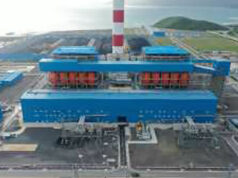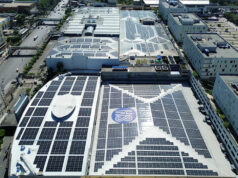Smart Communications, Inc., the wireless arm of PLDT Inc., said “reasonable” regulatory fees will facilitate telecommunications companies’ network rollouts in remote areas, noting that “arbitrary” regulatory fees in some local government units (LGUs) remain a major problem.
“To be able to provide equitable and faster access to our services in priority rollout areas, there must be affordable and reasonable regulatory and radio spectrum fees,” Smart Vice President and Head of Regulatory Affairs Roy D. Ibay said in a statement on Tuesday.
He also pointed out that the “arbitrary regulatory fees” imposed by some LGUs, including tower fees, inspection fees and audit fees, continue to be “major roadblocks for ICT growth.”
“Last year alone, Smart spent P2.4 billion on fees, which could have been spent on actual physical facilities to improve telecom services,” Mr. Ibay noted.
Smart said that a “uniform spectrum users fee based on a per kHz (kilohertz) per population will encourage the rollout, instead of the prevailing wireless broadband formula that discourages and punishes deployment of more wireless facilities in using a per station, per kilohertz computation.”
Mr. Ibay also said the proposed Open Access in Data Transmission Act, filed as House Bill No. 8910 and Senate Bills No. 45 and 911, should “ensure universal internet or data coverage.”
“It must avoid the trap of not setting out the objective in the law and ensure that data facilities or the much-needed fiber finds its way in the unserved and underserved areas,” he added.
The passage of the Open Access Act is expected to lower the barriers and cost to enter the data transmission market. Exporters and foreign business groups support the proposed measure.
PLDT, Smart, and Globe have acknowledged the current administration’s efforts to speed up approvals of permits for telecommunications towers.
PLDT and Smart said they had secured around 22,000 fixed and wireless permits as of June this year.
“However, the equally important rationalization of permits and fees for fiber optic rollouts have yet to be issued,” they also said.
For its part, Globe said it was “able to secure 1,180 permits as of end-May this year despite the continuing pandemic.”
Citing data from Ookla, the company behind Speedtest, the Department of Information and Communications Technology (DICT) said on Tuesday that the country’s speed rankings for both fixed broadband and mobile internet continued to improve in June.
“Ookla figures for June 2021 indicate that the country’s average download speeds for fixed broadband is now 66.55 megabits per second (Mbps), a 6.82 increase from the 59.73 Mbps speed recorded in May 2021,” the DICT said.
“For mobile internet, the June 2021 speed reached 32.84 Mbps, which shows an increase of 0.86 from the recorded 31.98 Mbps in May,” it added.
Hastings Holdings, Inc., a unit of PLDT Beneficial Trust Fund subsidiary MediaQuest Holdings, Inc., has a majority stake in BusinessWorld through the Philippine Star Group, which it controls. — Arjay L. Balinbin



